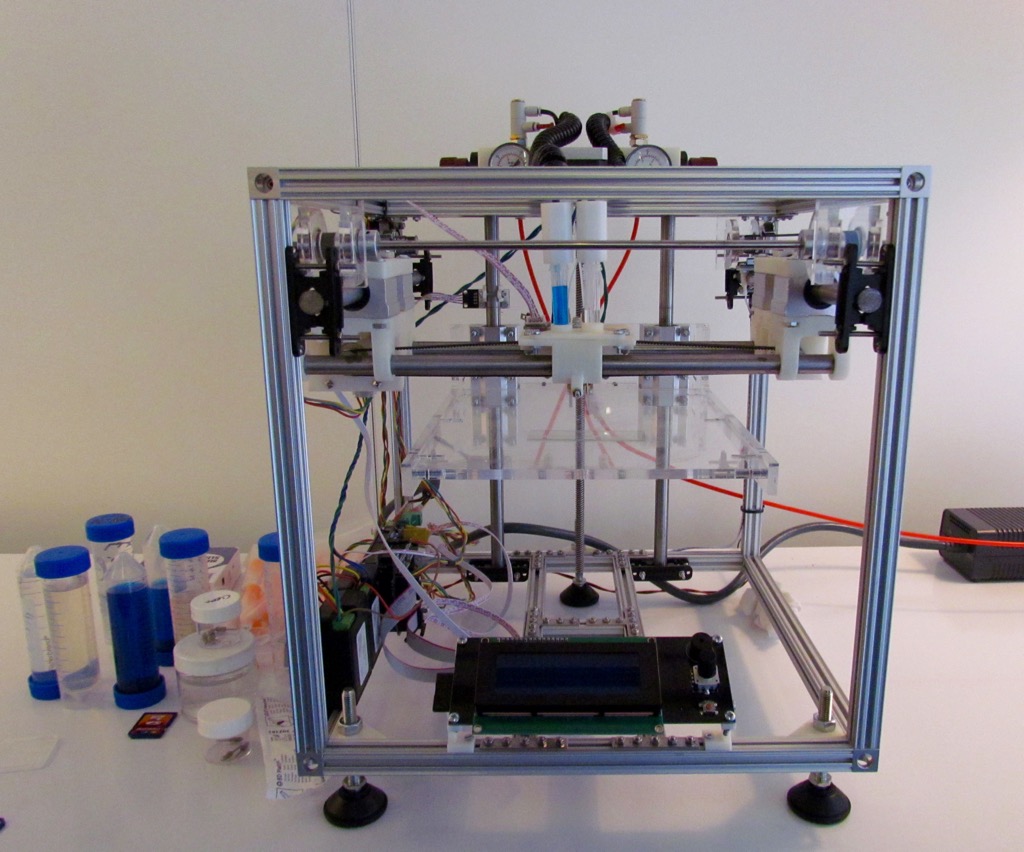Alan Faulkner-Jones’s bioprinter may someday be used in commercial applications.
Faulkner-Jones is a PhD student at Heriot Watt University in Edinburgh, where he’s been developing the bioprinter and associated materials. The key advantage to this machine is a custom-made gel that is highly perfusible, meaning it permits nutrients to flow deeply to living cells.
The machine has been somewhat refined from our look at it last year, but is now more portable. We’re told the software is unchanged.
What has changed is the possibilities for using the device in a commercial setting. Faulkner-Jones described to us two scenarios where his bioprinter technology could be effectively used commercially:
The printer could be packaged for direct sales. If so, medical researchers would be able to purchase this bioprinter and perform their experiments directly.
Another commercial possibility is to set up a factory line of bioprinters and provide services similar to Organovo: producing samples of living tissues to researchers on demand.
Or both.
We suspect Faulkner-Jones might be best off to attempt the latter, as building an in-house factory for tissue production might be less effort than marketing the device for sale, which requires many more considerations.


